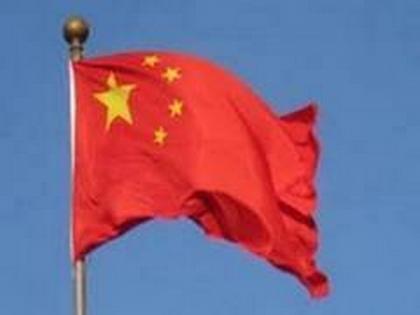Job loss in China highlighted fault lines in ruling Communist Party: Report
By ANI | Published: June 18, 2020 11:22 PM2020-06-18T23:22:11+5:302020-06-18T23:35:34+5:30
China's has witnessed a massive job loss in the recent time which has highlighted fault lines in the ruling Communist Party. Some China watchers in Hong Kong say there are signs President Xi Jinping and Premier Li Keqiang are at loggerheads over how to salvage the sinking economy, Nikkei Asian Review reported.

Job loss in China highlighted fault lines in ruling Communist Party: Report
China's has witnessed a massive job loss in the recent time which has highlighted fault lines in the ruling Communist Party. Some China watchers in Hong Kong say there are signs President Xi Jinping and Premier Li Keqiang are at loggerheads over how to salvage the sinking economy, Nikkei Asian Review reported.
They point to Li's speech to the National People's Congress, China's legislature, on May 22. In a notable break from tradition, Li did not set an economic growth target for this year. He also made no secret of his concern about job losses.
"While the official unemployment rate in the country stands around 6 per cent, that does not include people formally registered as living in rural areas. If migrant workers who have seen their jobs in cities disappear are included, the true joblessness figure jumps to around 20 per cent, according to private estimates," reported Nikkei Asian Review.
In China, unlike in the US, anger over unemployment does not usually spark mass protests. Freedom of expression is severely limited in the country. But keeping a tight lid on dissent risks an explosion of rage down the road.
The World Bank predicts China's economy will grow by an anaemic 1 per cent this year. That would be the slowest expansion since the country began opening to the outside world in the late 1970s.
"The question is how China's concerns about domestic stability may affect its behaviour toward other countries," Nikkei reported.
China's behaviour since the start of the coronavirus outbreak hints that China has become more diplomatically rigid, adopting a hard-line stance toward many countries.
Beijing has frequently sailed surveillance ships in waters around the Japanese-controlled Senkaku Islands.
On May 8, two China Coast Guard ships pursued a Japanese fishing boat in Japanese territorial waters around the islands, which are also claimed by China -- the second such provocative move in the past year.
China appears to be at the brink on cold war with the United States.
Beijing would have an incentive to lower tensions with US allies and partners, such as Japan, Australia, India and countries in South-East Asia. Traditionally, when its ties with Washington are strained, China tries to drive a wedge between the US and its friends in the Asia-Pacific region.
China used this tactic when it became internationally isolated following the 1989 Tiananmen Square massacre. It has abandoned hopes of quickly mending strained relations with the US and Europe and moved closer to Japan as the first step toward an eventual thaw with Western democracies.
( With inputs from ANI )
Open in app